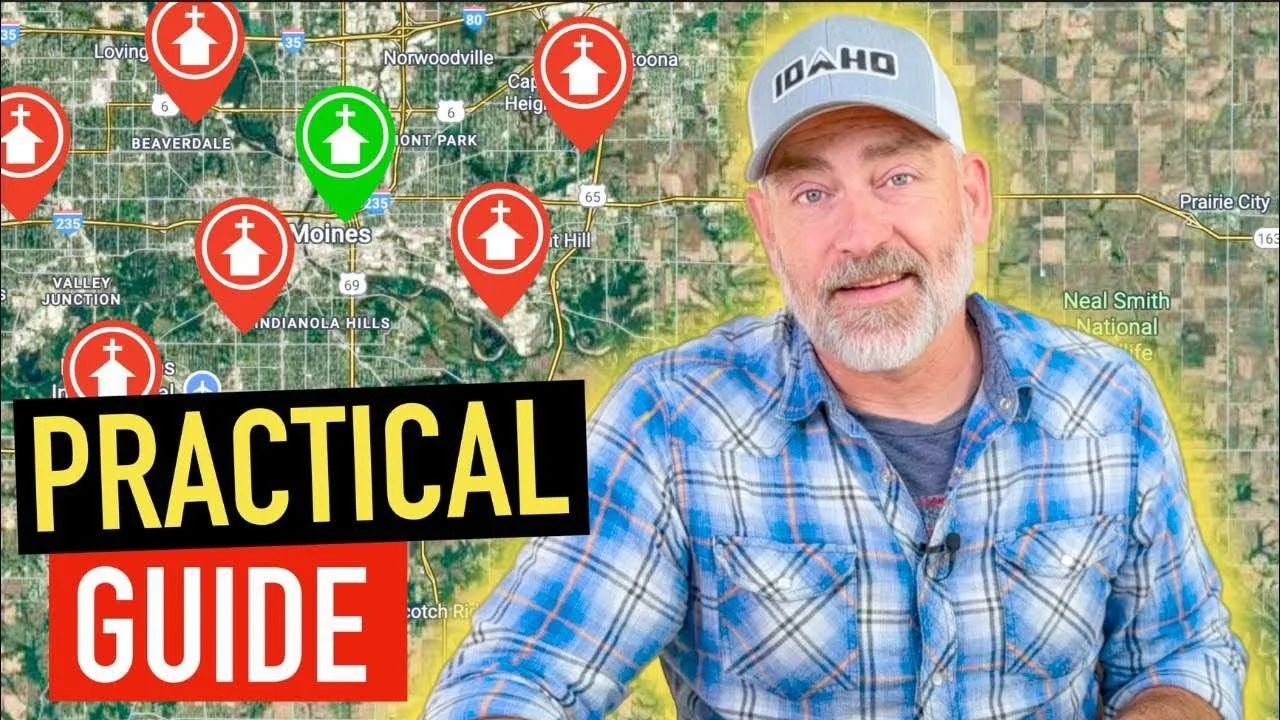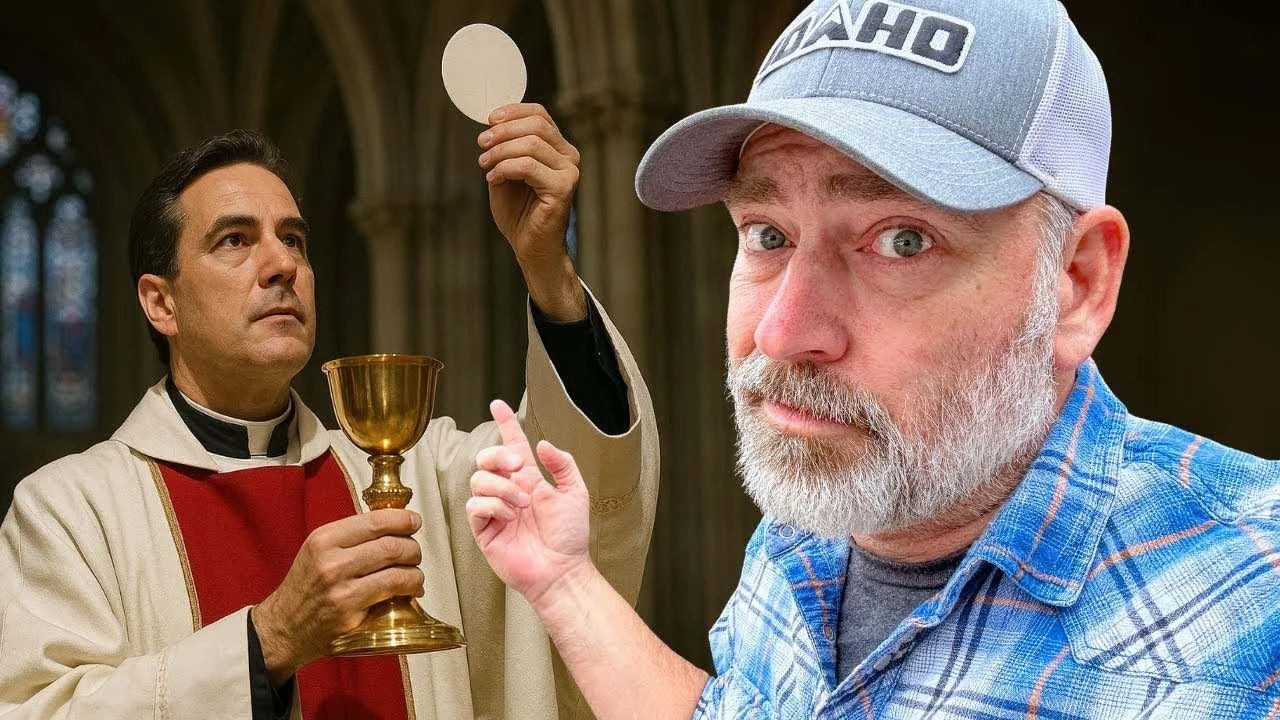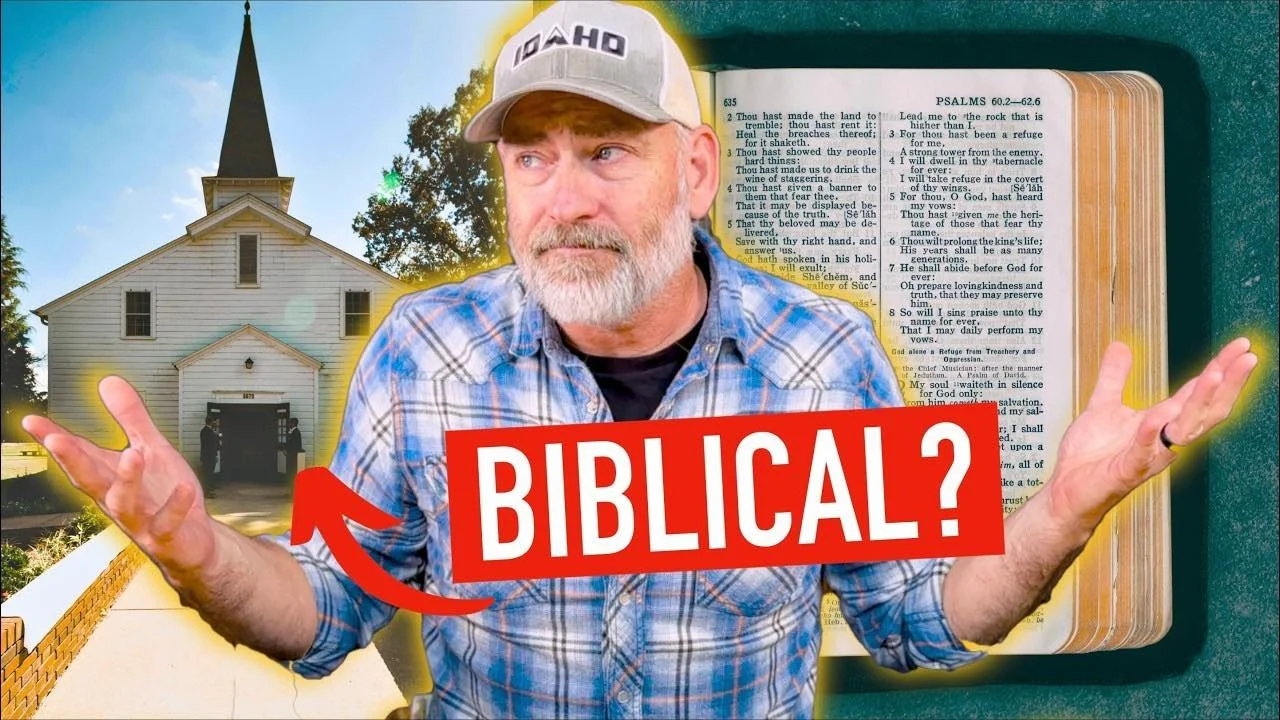What the Bible Really Says About Pastors
When you hear the word pastor, what comes to mind? Maybe the guy that preaches every Sunday morning? Or perhaps a youth pastor leading games at a church event?
But did you know that the way most churches use the word pastor today isn't even biblical? Let’s open up our Bibles and see what God actually says — and how we’ve gotten off track.
How Churches Use the Word "Pastor" Today
In many churches, the word pastor is used for the preacher or the spiritual leader — the man who’s in charge, almost like a spiritual CEO. But in the New Testament, pastor is the same as an elder and an overseer. These are not three separate roles but three different words for the same responsibility, and it’s a role that comes with serious biblical qualifications.
The Biblical Use of the Word "Pastor"
Interestingly, the word pastor only appears once in our English Bibles. It’s in Ephesians 4:11, where it says:
“And He Himself gave some to be apostles, some prophets, some evangelists, and some pastors and teachers…” (Ephesians 4:11 | NKJV)
The Greek word used here is poimēn, which means "shepherd." So why is it translated as pastor?
The Latin Vulgate translated the Greek poimēn as pastor in Latin. Then, when the King James Version was created, instead of translating from the original Greek, it transliterated the Latin word pastor directly into English. That’s how pastor ended up in our English Bibles — in that one verse.
Here’s the kicker: every other time poimēn appears in the New Testament, it’s translated as shepherd or shepherds, not pastor. Thankfully, some modern translations, like the ESV, are helping clear things up by translating poimēn in Ephesians 4:11 as shepherd rather than pastor. In the ESV, the verse reads:
“And he gave the apostles, the prophets, the evangelists, the shepherd and teachers…” (Ephesians 4:11 | ESV)
Three Terms for One Role
The Bible uses three different terms to describe church leaders: elders, overseers, and shepherds. Let’s take a closer look at each one:
Elders (presbuteros in Greek): Refers to older, mature men.
Overseers (translated in older versions like the KJV and NKJV as bishops, from the Greek episkopos): Means one who manages or guards.
Shepherds (poimēn in Greek): Means one who feeds and protects a flock.
These are not three different roles. They are three different aspects of the same job. Different words highlight different responsibilities, but all describe the same office.
Evidence from Scripture
Scripture shows clearly that these three terms refer to the same men:
In Acts 20:17 and 28, Paul calls for the Ephesian elders to come to him. He tells them to shepherd the flock and calls them overseers — all three terms used for the same group.
In Titus 1:5, Paul tells Titus to appoint elders in every city. Just two verses later, he refers to them as overseers.
In 1 Peter 5:1–2, Peter instructs the elders to shepherd the flock and act as overseers.
Notably, the role is always given to a group, never just one man. It’s always a plurality of qualified men leading the church.
Biblical Qualifications for Elders (Pastors)
So, what are the qualifications for a biblical elder, pastor, or overseer?
According to 1 Timothy chapter 3 and Titus chapter 1, a biblical leader must:
Be a man
Be the husband of one wife
Have faithful children
Be mature in the faith
Be able to teach and correct error
Be a godly and respectable man
Lead his household well
And that’s just a partial list.
In other words, being a biblical pastor or shepherd isn’t just about being able to preach well. It’s about being a qualified, spiritually mature person with tested character and experience.
What does your church call its leaders? And does it match what the New Testament describes?
4 Common Misuses of the Word Pastor
Let's explore four common ways that modern churches misuse the term pastor.
1. Turning "Pastor" into a One-Man Show
Today, many churches have a single pastor who runs the entire congregation.
But according to Scripture, leadership is by a plurality of elders. We see this model consistently throughout the New Testament:
Acts 14:23
Titus 1:5
James 4:15
Acts 20:17 and 28
1 Peter 5:1–2
Philippians 1:1
Each of these passages shows that leadership was not meant to rest on the shoulders of one man but a group of qualified men.
2. Dividing What God Joined Together
Some churches separate roles into categories like this:
Elders make decisions
Pastors preach
Bishops oversee multiple congregations
However, biblically, these are not distinct offices. They are simply different descriptions of the same role. Elders, overseers, and shepherds are all different angles of the same office, not separate jobs.
3. Calling Unqualified People "Pastor"
This misuse happens when churches give the title pastor to people who don't meet the biblical qualifications.
A youth pastor is often a young, single man with no children — immediately disqualified based on the requirement to be the husband of one wife and have faithful children.
A worship pastor is often simply a talented musician, not necessarily a qualified spiritual leader.
Children’s pastors and associate pastors are often job titles created for staff roles, not biblical offices.
Simply working at a church doesn’t make someone a pastor.
4. Turning "Pastor" into a Job Title
In Scripture, pastor isn't a title like "Pastor Bob" or "Pastor Susan." It’s not used the way we often hear it today:
"Oh, I just loved Pastor Bob’s sermon last week!"
"Did you hear what Pastor Bob did?"
Biblically, pastor is a function — it describes what an elder does: he shepherds the flock. It was never meant to be a job title or a form of address.
Why It Matters
You might wonder: Why does any of this even matter?
It matters because God’s design for church leadership is better than anything we could invent ourselves.
When churches follow the Scriptures:
They are protected from abuse and false teaching by a plurality of spiritually mature men.
Leaders are held accountable by each other, preventing any one man from becoming a dictator.
Members receive real spiritual care from godly, mature leaders.
When we ignore God's design, we invite confusion, abuse, and spiritual harm into the church.
What Should You Do Next?
If you’re a member of a local congregation, ask yourself:
"Does my church follow the biblical pattern of leadership?"
If not, you might consider lovingly bringing the issue to your leaders. And if the leaders refuse to align with Scripture, it might be time to find a church that does.
If you’re a church leader, ask yourself:
"Am I following God's plan or man's traditions?"
Remember: Jesus is the head of the church, not us. He makes the rules — we follow them. God's plan always works best. Let's get back to it.
And if you happen to be in our area and you're looking for a church that's doing its best to follow the Scriptures, we would love to have you come visit. Check out our Contact page where you can find all the information you need.
If you’re just starting your journey with God, check out our Bible study playlist. It walks you through the entire Bible in just a few short videos.







